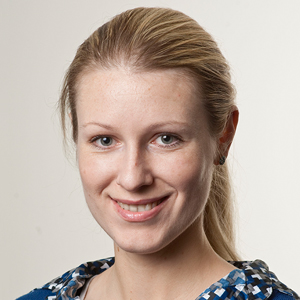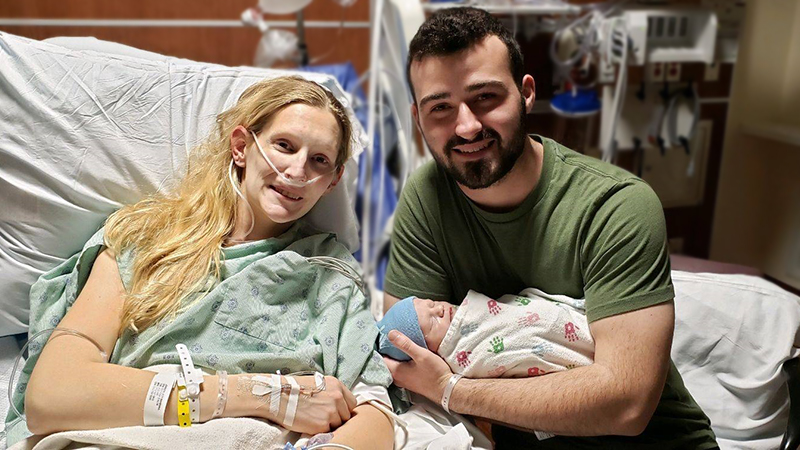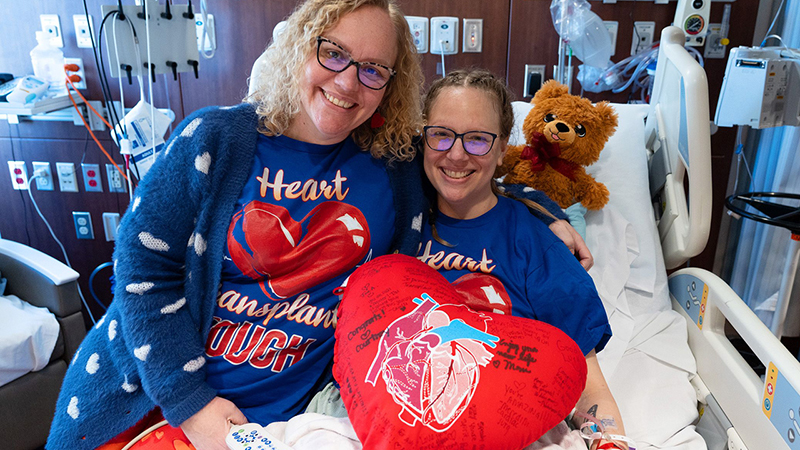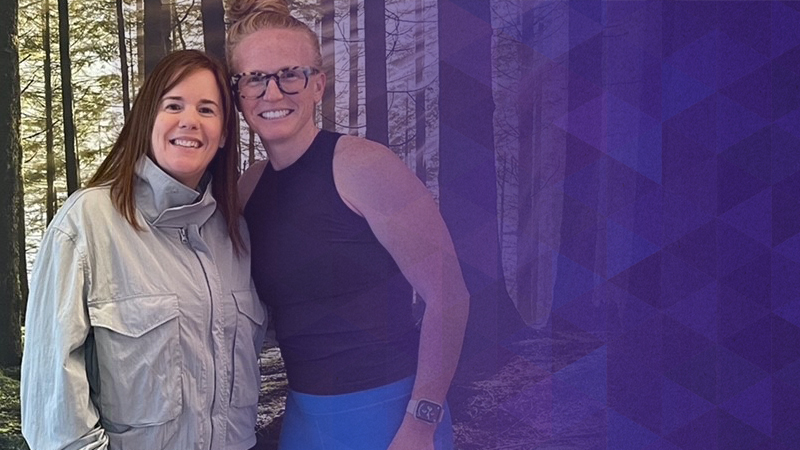A Nephrologist Donates a Kidney and Starts a Domino Effect
Living-Donor Organ Transplantation Saves Two Lives
Published June 2023
Every day as a nephrologist at Northwestern Medicine, Aleksandra Gmurczyk, MD, sees patients who have kidney failure. She encourages them to take their medications as prescribed, go to all their dialysis appointments and to consider the possibility of a kidney transplant so they can live healthier, longer lives.
I hoped by donating my kidney, I’d inspire others to donate.— Aleksandra Gmurczyk, MD
As a physician who also serves patients at Jesse Brown VA Medical Center, she often speaks with veterans who would rather stay on dialysis than undergo organ transplantation. Several years ago, she began to consider how she could change her patients’ opinions if she donated one of her own kidneys to someone in need.
Giving the Gift of Life
“I wanted to help someone,” Dr. Gmurczyk says. “I know people can live healthy lives with one kidney, and I know the high need for living-donor organs. I hoped by donating my kidney, I’d help someone, and I also wanted to inspire others to donate.”
Dr. Gmurczyk’s only challenge? Finding the right person to receive her kidney. She thought of all her patients, and realized she couldn’t choose just one.
Her decision to do this kicked off a kidney paired donation, which occurs when patients have people who are willing to donate their kidneys, but they are not good matches with their designated recipients. Instead, the donors swap recipients, and give their kidneys to patients who are a better match. Dr. Gmurczyk donated her kidney to a hard-to-match patient in Virginia she had never met, and that patient’s husband donated his kidney to a Northwestern Medicine patient in Chicago.
“It’s the transplant world’s version of the perfect ‘domino effect,’” says John J. Friedewald, MD, medical director of Kidney and Pancreas Transplantation at Northwestern Memorial Hospital. “As a nephrologist, Dr. Gmurczyk understands the benefits and risks of becoming a living organ donor, and every day she sees patients who need kidneys. Our entire team was humbled to support her as she went through this process. We weren’t surprised that she chose to give the gift of life, but we were all moved by this experience.”
Kidneys from living donors can function for about twice as long as deceased-donor kidneys. Kidneys from living donors are also more likely to function right away, helping recipients recover more quickly.
“I see how hard life can be for patients on dialysis,” Dr. Gmurczyk says. “It’s like a part-time job with appointments that are three times a week and four hours per session. They can’t travel, go overseas, and it can be tough for them to work. It’s heartbreaking.”
Saving Lives and Inspiring Others
Art Reyes of Chicago, Illinois, knows firsthand how life changing a kidney failure diagnosis can be. After diabetes caused irreversible kidney damage, he began dialysis to remove waste products from his blood. Prior to his illness, he and his wife enjoyed spending time with their many nephews and nieces. Dialysis forced him to focus more on his health and his next medical appointments, and it stole precious time from his family.
“It was very depressing, and you kind of lose hope,” says Art. “You hear all the statistics, and that it can take up to eight or 10 years to get a deceased donor. After we found out my family members weren’t a good match for me, I was thinking I should just enjoy the time I had left.”
Then, Art received a shocking call: If he was willing to receive a kidney from an anonymous donor, he could have surgery in two weeks.
“I was counting the days until surgery,” he says. “I knew the donor could back out at any time, and then the dream would be over.”
But what Art didn’t know was that Dr. Gmurczyk was committed to her donation. She prepared for surgery and then began the typical donor journey. She had a short hospital stay after the donation and didn’t know she’d helped more than one patient until weeks after surgery.
“It was exactly what I’d hoped for, and my recovery was exactly what we tell donors to expect,” Dr. Gmurczyk says. “I even walked home after my surgery. I returned to work two weeks after I donated and was just a little tired each night after work. I’m so glad I made the decision to donate, and I encourage others to explore the process. It’s much easier than you think.”
Dr. Gmurczyk may have already inspired one of her patients to get a kidney transplant. For years, she had been trying to convince the patient to consider the surgery, and following her donation, the patient decided to start the evaluation process.
The Need for Living Organ Donors
Currently 90,000 people in the United States are waiting for a kidney donation, and 85% of all patients waiting for organ donation are waiting for a kidney, according to Donate Life America. The Centers for Disease Control and Prevention (CDC) estimates that more than one in seven adults in the United States have chronic kidney disease.
“If you are a healthy adult and you think you may be an eligible kidney donor, I encourage you explore the possibility,” Dr. Gmurczyk says. “All of my appointments prior to donation were done in one day, and I only needed a short amount of down time after my surgery. I feel like I benefited as much as the recipients, because I know how much my decision to donate will help improve their lives.”
To learn more about becoming a living organ donor, you can visit nmlivingdonor.org.








